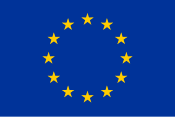Usuario:Demiannnn/PORTAL:EUROPA
|
The EU's activities cover all areas of public policy, from health and economic policy to foreign affairs and defence. However, the extent of its powers differs greatly depending on the area in question, the EU may therefore resemble a federation, a confederation or an international organisation. The Union currently has a common single market consisting of a customs union, a single currency managed by the European Central Bank, a Common Agricultural Policy, a common trade policy, and a Common Fisheries Policy. A Common Foreign and Security Policy was also established as the second of the three pillars of the European Union. The Schengen Agreement abolished passport control, and customs checks were also abolished at many of the EU's internal borders, creating a single space of mobility for EU citizens to live, travel, work and invest.
The EU's activities cover all areas of public policy, from health and economic policy to foreign affairs and defence. However, the extent of its powers differs greatly depending on the area in question, the EU may therefore resemble a federation, a confederation or an international organisation. The Union currently has a common single market consisting of a customs union, a single currency managed by the European Central Bank, a Common Agricultural Policy, a common trade policy, and a Common Fisheries Policy. A Common Foreign and Security Policy was also established as the second of the three pillars of the European Union. The Schengen Agreement abolished passport control, and customs checks were also abolished at many of the EU's internal borders, creating a single space of mobility for EU citizens to live, travel, work and invest.
European Union - Eurozone - Borders - Geography - History - Member states - Military - Space Agency - Statistics - Symbols - Topics - Treaties Law: Acquis - Competition law - Copyright law - Journal - Maastricht Treaty - Procedure - Regulation - Three pillars Politics: Agencies - Commission - Committees - Council - Court of Justice - Elections - Enlargement - Foreign relations - MEPs - Parliament - Parties Life: Central Bank - Citizenship - Demographics - Economy - Educational - Energy - Euro - European Coal and Steel - Institute of Technology - Languages - Library - Sport Lists: Agencies - Directives - Institutions - Largest cities - Member states - Political parties - Presidency Usuario:Demiannnn/PORTAL:EUROPA/cabezero {{/{{{subpagina}}}/8}} Usuario:Demiannnn/PORTAL:EUROPA/piedepagina Usuario:Demiannnn/PORTAL:EUROPA/cabezero {{/{{{subpagina}}}/5}} Usuario:Demiannnn/PORTAL:EUROPA/piedepagina
Usuario:Demiannnn/PORTAL:EUROPA/cabezero {{/{{{subpagina}}}/13}} Usuario:Demiannnn/PORTAL:EUROPA/piedepagina
|

